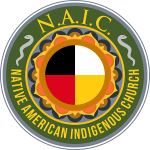The Boyll Decision
These are excerpts from Judge Burciga’s decision in 1991... They illustrate the inherent right of Native American Church Members to access Sacrement and Ceremony as well as the right of Native American Church Branches to accept non- full blood or Non-Indians as members.
IN THE UNITED STATES DISTRICT COURT
FOR THE DISTRICT OF NEW MEXICO UNITED STATES OF AMERICA
Plaintiff v. Criminal No. 90-207-JB ROBERT LAWRENCE BOYLL Defendant
Judge Burciaga presiding:
MEMORANDUM OPINION AND ORDER – THERE is a genius to our Constitution. Its genius is that it speaks to the freedoms of the individual. It is this genius that brings the present matter before the Court. More specifically, this matter concerns a freedom that was a natural idea whose genesis was in the Plymouth Charter, and finds its present form in the First Amendment to the United States Constitution — the freedom of religion. ———————
The Government’s “war on drugs” has become a wildfire that threatens to consume those fundamental rights of the individual deliberately enshrined in our Constitution. Ironically, as we celebrate the 2OOth anniversary of the Bill of Rights, the tattered Fourth Amendment right to be free from unreasonable searches and seizures and the now frail Fifth Amendment right against self-incrimination or deprivation of liberty without due process have fallen as casualties in this “war on drugs.” It was naive of this Court to hope that this erosion of constitutional protections would stop at the Fourth and Fifth Amendments. But today, the “war” targets one of the most deeply held fundamental rights — the First Amendment right to freely exercise one’s religion. ————-
In its “war” to free our society of the devastating effects of drugs, the Government slights its duty to observe the fundamental freedom of individuals to practice the religion of their choice, regardless of race. Simply put, the Court is faced with the quintessential constitutional conflict between an inalienable right upon which this country was founded and the response by the Government to the swelling political passions of the day. In this fray, the Court is compelled to halt this menacing attack on our constitutional freedoms. On May 10, 1990, the Federal Grand Jury indicted Robert Lawrence Boyll, a non-Native American, for unlawfully importing peyote through the United States mail and possessing peyote with the intent to distribute it, in violation of 21 U.S.C. 952(a), 960(b)(3), 843(b) & (c), & 841(a)(1) (1981). The three-count indictment arose out of Mr. Boyll mailing himself a quantity of peyote from Mexico to his home in San Cristobal, New Mexico. In his motions to dismiss, Mr. Boyll argues that the indictment violates his First Amendment right to freely exercise his religion. Mr. Boyll also claims that, pursuant to 21 C.F.R. 1307.31 (1990), the listing of peyote as a controlled substance does not apply to him because he is a member of the Native American Church and he imported and possessed peyote for use in bona fide religious ceremonies of the Native American Church. ———————
“Church” refers to a body of believers and their shared practices, rather than the existence of a formal structure or a membership roll. Membership in the Native American Church derives from the sincerity of one’s beliefs and participation in its ceremonies. Historically, the church has been hospitable to and, in fact, has proselytized non-Indians. The vast majority of Native American Church congregations, like most conventional congregations, maintains an “open door” policy and does not exclude persons on the basis of their race. Racial restrictions to membership have never been a general part of Peyote Religion or of the Native American Church. See Peyote Religion at 333-34; State v. Whittingham, 504 P.2d 950, 951 (Ariz. Ct. App. 1973) (membership to non-Indians is usually not refused), review denied, 517 P.2d 1275, cert. denied, 417 U.S. 946 (1974). Although one branch of the Native American Church, the Native American Church of North America, is known to restrict membership to Native Americans, most other branches of the Native American Church do not. As a result, non-Indian members are accepted within the Native American Church. ——————————-
It is one thing for a local branch of the Native American Church to adopt its own restrictions on membership, but it is entirely another for the Government to restrict membership in a religious organization on the basis of race. Any such attempt to restrict religious liberties along racial lines would not only be a contemptuous affront to the First Amendment guarantee of freedom of religion but also to the Fourteenth Amendment right to equal justice under the law. —————————-
For the reasons set out in this Memorandum Opinion and Order, the Court holds that, pursuant to 21 C.F.R. 1307.31 (1990), the classification of peyote as a Schedule I controlled substance, see 21 U.S.C. 812(c), Schedule I (c)(12), does not apply to the importation, possession or use of peyote for bona fide ceremonial use by members of the Native American Church, regardless of race. Wherefore, IT IS ORDERED, ADJUDGED AND DECREED that Defendant Robert Boyll’s motions to dismiss the indictment be and hereby are GRANTED. DATED at Albuquerque the day of September, 1991.
Opinion:
“Nowhere is it even suggested that the exemption applies only to Indian members of the Native American Church. Had the intention been to exclude non-Indian members, as the United States argues, the language of the exemption would have so clearly provided. Indeed, the federal peyote exemption makes no reference whatsoever to a racial exclusion”
“The District Court, Burciaga, Chief Judge, held that: (1) permitting Indians’ non-drug use of peyote in bona fide religious ceremonies of Native American church, but prohibiting such use by non-Indians, would violate free exercise and equal protection clauses; (2) compelling interest test applied to free exercise challenge to prosecution of non-Indian member, and (3) prosecution would violate free exercise clause. Motions granted..”

